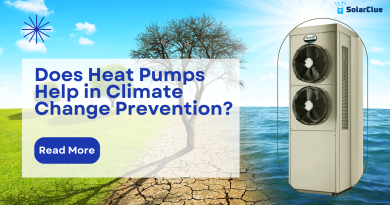How to reduce Carbon Footprint?
Climate change is one of the biggest challenges we are facing today. One way to tackle that is to first know how to reduce carbon footprint. It’s crucial that we all take steps to reduce our carbon footprint.
In this blog we will discuss more about carbon footprint, and ways to reduce it for a better future. Let’s get started!
What is a Carbon Footprint?
A carbon footprint is the total amount of greenhouse gases, primarily carbon dioxide, released into the atmosphere due to human activities. These activities include burning fossil fuels for electricity, transportation, and heating, as well as deforestation and industrial processes. A larger carbon footprint contributes to global warming, which can lead to adverse effects such as rising sea levels, extreme weather events, and loss of biodiversity.
How to Reduce Carbon Footprint?
One of the most effective ways to reduce your carbon footprint is to minimize your electricity consumption. Electricity generation from fossil fuels is a major source of greenhouse gas emissions, so reducing your energy usage can significantly lower your carbon footprint.
How Can a Person Reduce Carbon Footprint?

There are several ways individuals can reduce their carbon footprint. One simple yet impactful approach is to use energy-efficient devices that consume less electricity. One such device is a heat pump water heater, which can significantly reduce your energy consumption for hot water needs.
Traditional geysers or water heaters work by heating water using electricity or gas, which can be energy-intensive and contribute to a larger carbon footprint. In contrast, heat pump water heaters use a more efficient process to heat water.
What is a Heat Pump Water Heater and how does it Work?
A heat pump is an energy-efficient appliance that uses electricity to transfer heat from the surrounding air to water, rather than generating heat directly. This process is similar to how a refrigerator or air conditioner works, but in reverse.
The heat pump water heater consists of an exhaust fan , a compressor, and a condenser coil. The exhaust fan absorbs heat from the surrounding air, and the compressor circulates a refrigerant that carries the heat to the condenser coil. The condenser coil then transfers the heat to the water in the storage tank, effectively heating the water.
How can a Heat Pump Help You Reduce Carbon Footprint?
By using a heat pump, you can significantly reduce your energy consumption and carbon footprint. Heat pump systems are much more energy-efficient than traditional geysers, using about one-fourth of the energy to heat the same amount of water.
This energy efficiency translates into lower greenhouse gas emissions, as less electricity needs to be generated from fossil fuel sources to power your water heater. Additionally, heat pump water heaters do not burn fuel or release emissions directly, further contributing to a smaller carbon footprint.
What Are the Other Benefits of a Heat Pump Water Heater?
In addition to reducing your carbon footprint, heat pump water heaters offer several other benefits:
1. Cost-Effective
While the initial cost of a heat pump water heater may be higher than a traditional geyser, the energy savings over time can offset the upfront investment, resulting in lower utility bills.
2. Long Lifespan
Heat pump water heaters typically have a longer lifespan than conventional water heaters, lasting up to 15 years or more with proper maintenance.
3. Reduced Water Wastage
Since heat pump water heaters heat water more efficiently, they can maintain a consistent supply of hot water without the need for frequent reheating, reducing water wastage.
4. Efficient in Cold Climates
Unlike traditional water heaters, heat pump water heaters can effectively heat water even in colder temperatures, making them suitable for use in various climates.
Conclusion
To know how to reduce carbon footprint is crucial for mitigating the effects of climate change. One effective way to do so is by adopting energy-efficient appliances like heat pump water heaters. By making this simple switch, you can significantly reduce your energy consumption, lower your utility bills, and contribute to a more sustainable future for our planet.
Visit SolarClue® to see the best heat pump water heaters. SolarClue® is an online marketplace where solar energy products are sold at discounts up to 50%.




